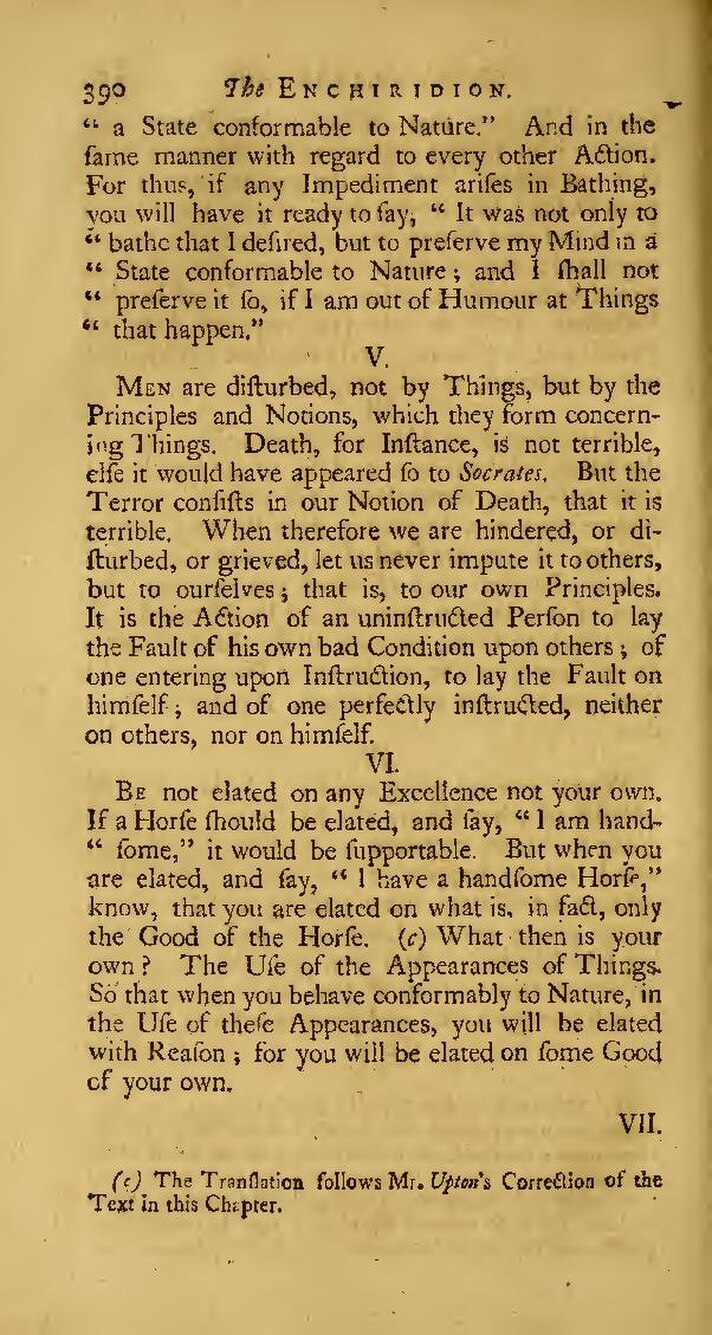a State conformable to Nature." And in the same manner with regard to every other Action. For thus, if any Impediment arises in Bathing, you will have it ready to say, "It was not only to bathe that I desired, but to preserve my Mind in a State conformable to Nature; and I shall not preserve it so, if I am out of Humour at Things that happen."
V.
Men are disturbed, not by Things, but by the Principles and Notions, which they form concerning Things. Death, for Instance, is not terrible, else it would have appeared so to Socrates. But the Terror consists in our Notion of Death, that it is terrible. When therefore we are hindered, or disturbed, or grieved, let us never impute it to others, but to ourselves; that is, to our own Principles. It is the Action of an uninstructed Person to lay the Fault of his own bad Condition upon others; of one entering upon Instruction, to lay the Fault on himself, and of one perfectly instructed, neither on others, nor on himself.
VI.
Be not elated on any Excellence not your own. If a Horse should be elated, and say, "I am handsome," it would be supportable. But when you are elated, and say, "I have a handsome Horse," know, that you are elated on what is, in fact, only the Good of the Horse.[1] What then is your own? The Use of the Appearances of Things. So that when you behave conformably to Nature, in the Use of these Appearances, you will be elated with Reason; for you will be elated on some Good of your own.
- ↑ The Translation follows Mr. Upton's Correction of the Text in this Chapter.
